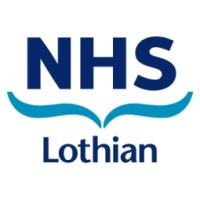Job Description
Grade AMN2: £48,288 to £71,550 per annum (will be capped at paypoint 3)
CMVM / School of Regeneration and Repair / Centre for Reproductive Health
Full-time: 40 hours per week
Fixed term: 2 years
The Opportunity
We are looking for a clinical research fellow to join our team based in sexual and reproductive health to work on mixed methods research on initiatives to eliminate cervical cancer, develop clinical research skills, and pursue a MD (possible option if additional funding available to extend to PhD).
This post is full-time (40 hours per week), and may require some flexible working.
Your Skills And Attributes For Success
- MBChB with full GMC registration
- Willingness to attend a GCP course and participate in generic training for clinical researchers is essential
- Understanding of the ethics of medical research.
- Willingness to engage in research in sexual and reproductive health with a focus on elimination of cervical cancer .
Click to view a copy of the full job description (opens new browser tab)
As a valued member of our team you can expect:
- A competitive salary of £48,288 - £71,550 - the starting salary will be capped at AMN2 paypoint 3 (equivalent of ST4 on the Scotland Junior Doctor payscale). Any appointment above this paypoint may result in a reduction in contract length.
- An exciting, positive, creative, challenging and rewarding place to work.
- To be part of a diverse and vibrant international community
- Comprehensive Staff Benefits, such as a generous holiday entitlement, a defined benefits pension scheme, staff discounts, family-friendly initiatives, and flexible work options. Check out the full list on our staff benefits page (opens in a new tab) and use our reward calculator to discover the total value of your pay and benefits, will be eligible to retain NHS pension.
Championing equality, diversity and inclusion
The University of Edinburgh holds a Silver Athena SWAN award in recognition of our commitment to advance gender equality in higher education. We are members of the Race Equality Charter and we are also Stonewall Scotland Diversity Champions, actively promoting LGBT equality.
Prior to any employment commencing with the University you will be required to evidence your right to work in the UK. Further information is available on our
right to work webpages (opens new browser tab).
On this occasion the University will not consider applicants requiring sponsorship for this role. International workers will therefore only be able to take up this role if they can demonstrate an alternative right to work in the UK.
Key dates to note
The closing date for applications is 8 December 2025.
Unless stated otherwise the closing time for applications is 11:59pm GMT. If you are applying outside the UK the closing time on our adverts automatically adjusts to your browsers local time zone.
About Us
As a world-leading research-intensive University, we are here to address tomorrow’s greatest challenges. Between now and 2030 we will do that with a values-led approach to teaching, research and innovation, and through the strength of our relationships, both locally and globally.
About The Team
The Centre for Reproductive Health (CRH; Director; Professor Andrew Horne) at the University of Edinburgh has the largest concentration in the UK of scientists who study reproductive health, from basic biology to clinical translation. It is one of the leading Centres in reproductive health in the world and is a trusted source for this research globally.
CRH conducts fundamental and applied research that aims to develop novel treatments for the major unmet needs in reproductive disorders and to exploit impacts of this research across medicine. The internationally competitive research activity of reproductive scientists based within the Centre is augmented by clinical activities based within the adjacent Royal Infirmary and Simpson Centre for Reproductive Health.
A central mission is “to gain fundamental understanding of the impact of reproductive processes and their pathologies on the entire life-span of males and females: to use this knowledge to improve human health from birth to old age and to provide leadership in training and public engagement in reproductive health“. This vision is currently enabled by four groupings: (i) Reproductive Resilience, Proliferation, Differentiation and Repair (ii) Reproductive system cancers: aetiology, pathogenesis and therapy (iii) Optimizing life-long health through pregnancy and perinatal interventions (iv) Immune-Endocrine interactions in Reproductive Health.
https://www.ed.ac.uk/centre-reproductive-health





